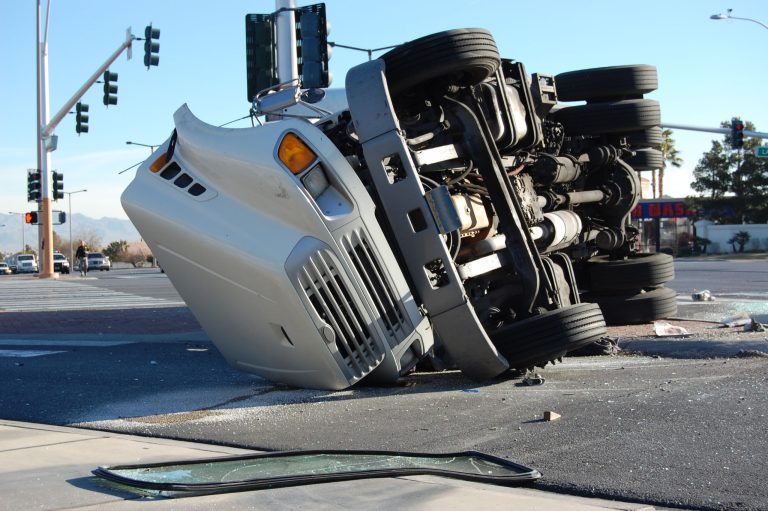The worth of your accident injury claim depends on a variety of factors, making it impossible to provide you a specific amount or guarantee a specific financial outcome from a settlement or jury award.
Lawyers and insurance companies use a variety of methods to assess the value of your accident injury claim, and the insurance company and/or defense legal team will certainly assess your claim’s value well below your attorney’s assessment. In fact, settlement negotiations are heavily focused on reaching an agreement about the value of your claim.
 Factors that affect the value of your claim include economic losses you’ve incurred as a result of your injuries such as lost wages, medical treatment costs, and expenses to replace household services you can no longer provide. Economic losses are easy to quantify because lawyers and investigators can simply add up your bills and receipts.
Factors that affect the value of your claim include economic losses you’ve incurred as a result of your injuries such as lost wages, medical treatment costs, and expenses to replace household services you can no longer provide. Economic losses are easy to quantify because lawyers and investigators can simply add up your bills and receipts.
Calculating your future economic losses requires estimation and is slightly harder, but lawyers have networks of specialists and experts who can help.
Placing a value on non-economic losses is much more difficult and often requires the input of specialists and experts. Money for non-economic losses provides compensation for the ways your injuries have affected your life, including things like pain and suffering, a change in your quality of life, and scarring or disfigurement.
Other aspects of your injuries and how your accident occurred can also affect the value of your accident injury claim. For example, if your accident occurred as a result of the other party’s gross negligence, you can ask for punitive damages when you make your accident injury claim.
Your attorney will carefully evaluate your accident injury claim to place a monetary value on it. This is still only a ballpark estimate and does not guarantee that you will receive the full amount from a settlement or court-awarded damages. Your personal injury lawyer will pursue the best financial outcome for your claim, which is one that compensates you fairly in light of your injuries and losses.
Below we discuss the multitude of factors and considerations that add to or detract from how much your accident injury claim is worth.
Economic Losses Typically Included in Accident Injury Claims
The total economic loss related to accident injuries varies widely. Regardless of how an accident occurred, severe injuries typically lead to weeks or months away from work and massive medical bills.
When the injured accident victim is a child, one or both parents must take time off work to care for an injured child in the hospital or at home. Severe accidents are costly and injured people can easily rack up tens or hundreds of thousands of dollars in medical bills. These massive economic costs sometimes bankrupt families, or at least make it extremely difficult for them to pay monthly bills on time.
Accident injury claims involving high economic losses typically have a higher total value than those involving little economic loss. Specific items that fall under the umbrella of economic loss in an accident injury claim include the categories discussed below.
Medical Expenses
Most accident victims begin to amass medical treatment costs immediately after an accident. Whether you have suffered accident injuries in a vehicle, at work, on a motorcycle, or as a result of some other incident, it’s likely you immediately went to the nearest emergency room for medical attention. Your ambulance ride to the hospital is just the beginning of your medical expenses.
In addition to emergency room treatment, other medical treatment costs you could accumulate as a result of your accident injury include:
- Surgery and related costs;
- Diagnostic testing including x-rays, CT scans, MRIs, blood tests, urine tests, and other lab tests;
- Hospitalization for days, weeks, or months, depending on the nature and severity of your accident and injuries; and
- Follow-up doctor’s visits, ongoing treatment, and/or rehabilitative therapy for injuries.
Lost Wages
Accident injury victims often need to take extensive time away from work. Depending on the severity of the injuries, an injured victim might need weeks or months off for hospitalization and recovery. Initially, accident victims can usually use up paid time off such as sick leave, personal holidays, and vacation time, which replaces some income. Once they exhaust all their paid time off, however, they must take an unpaid leave of absence from work. If you have missed work as a result of injuries related to your accident, your attorney will likely include lost wages in the value of your claim.
If your accident occurred in the workplace, you potentially qualify for workers’ compensation benefits to help replace some of your lost income. But workers’ comp. only covers a portion of lost wages, leaving a gap in your household income. You can expect that the more time you must miss from work because of hospitalization and recovery, the higher the value of your accident injury claim. Keep in mind, however, that lost wages are offset by any workers’ comp. benefits or disability payments you receive when your attorney places a value on your claim.
Rehabilitation Costs
Those who suffer severe injuries in an accident typically have a long road to recovery that includes a variety of rehabilitative therapy that could be inpatient or outpatient depending on the circumstances. These costs also impact how much your accident injury claim is worth. Rehabilitation can last weeks, months, and sometimes years, depending on the extent of your injuries. Each person needs help in different areas and responds to different types of rehabilitation. In fact, many accident victims need multiple types of specialized rehab treatment.
Some examples of rehabilitation costs that can be included in accident injury claims are:
- Physical therapy. The main purpose of physical therapy is to help accident victims improve or regain lost mobility after an accident. Therapists provide exercises, massage, and other treatments to help patients gain strength, increase their range of motion, increase stability, and reduce pain in the areas of their body that suffered injuries.
- Occupational therapy. The focus of occupational therapy is to help accident victims relearn to complete tasks and activities that were formerly part of their normal, daily routine. Occupational therapists help accident victims improve their fine motor skills, restore their balance, and increase body function by teaching them how to use adaptive technology. Occupational therapy is especially common for accident victims whose injuries lead to a permanent disability.
- Speech therapy. Some severe injuries leave accident victims with difficulty speaking, communicating, and swallowing. A speech therapist helps patients regain or redevelop these skills after an accident, so victims can better communicate with those around them.
- Respiratory therapy. When an accident leads to lung injuries and other issues in the respiratory system, accident victims might have to undergo respiratory therapy to decrease respiratory distress, maintain open airways, and learn how to use supplemental oxygen when applicable.
- Cognitive rehabilitation. Some accidents lead to a traumatic brain injury. Regardless of the severity of a brain injury, many victims struggle with memory, thinking, and logical reasoning. Cognitive rehabilitation helps accident victims improve these areas.
- Vocational rehabilitation. Accident victims who have a good chance of making a full recovery, or close to it, sometimes participate in vocational therapy. Vocational therapy helps accident victims prepare to return to work after suffering injuries.
Mental Health Services
Severe accidents create emotional trauma for many victims. Sometimes the trauma is a result of the accident itself. Other times, the trauma is the result of a devastating permanent injury, such as an amputation. Motor vehicle accidents can lead to post-traumatic stress disorder (PTSD) in accident victims, and all its accompanying symptoms such as flashbacks, depression, anxiety. Some accident victims also deal with mental anguish because they feel guilt when a fatality occurred as a result of the accident. In any case, some accident victims must undergo costly psychotherapy or cognitive behavioral therapy to work through their trauma.
Home Modification Expenses
Many accident victims eventually return home, even after weeks or months in the hospital after a serious accident. Leaving the hospital, however, does not automatically mean an accident victim has made a full recovery. Also, some accident victims suffer permanent disabilities resulting from their injuries. In these cases, transitioning home requires making modifications to an accident victim’s home to make it more accessible. Related expenses can range from hundreds to thousands of dollars depending on the circumstances, and they contribute to injury-related economic loss, increasing the value of your accident injury claim.
Examples of costly modifications you might have to make to your home after suffering injuries in an accident include:
- The addition of a wheelchair ramp for exit and entry;
- The installation of handrails in parts of the home to allow for safe movement;
- The installation of bars in the bathroom, shower, and bathtub;
- Removing a bathtub and installing a shower; and
- Building a main floor addition to provide another bedroom and/or bathroom when using stairs is impossible.
Household Service Replacement Costs
Adults do a variety of tasks to maintain their homes. Suffering devastating injuries in an accident prevents accident victims from temporarily or permanently performing some or all of the household tasks they performed before their injuries. In many cases, family members pick up the slack, but this isn’t always enough. Also, some family members provide care for their loved ones at home, which can make it difficult for them to take on all the additional responsibilities that come with maintaining a house. Many families need to use outside services or hire some help when a loved one suffers severe injuries.
Examples of household services that families sometimes need to hire help with after an accident include:
- Lawn and landscaping services;
- Pool maintenance services;
- Cleaning, laundry, or general housekeeping;
- Grocery or meal delivery services;
- Carpenter or handyman services;
- Childcare services such as a babysitter, nanny, or daycare;
- A tutor for school-aged children;
- A personal assistant to run needed errands; and
- A driver.
If you or the people with whom you share a home already use these services, they will not increase how much your accident injury claim is worth. But if you need to hire additional help as a result of an accident and injuries, your attorney can include these costs in your accident injury claim.
Long-Term Nursing Care
Some accident injuries might require you to receive long-term care. If you can’t care for yourself or your family cannot care for you, living in an expensive long-term care facility is a likely necessity. According to the United States Department of Health and Human Services, residing in a long-term care facility costs between $7,000 and $8,000 per month, and hiring a home health aide costs more than $20 per hour.
If you or your loved one needs long-term care, your attorney may include the estimated cost in your accident injury claim. These estimates pose more of a challenge than simply adding up medical bills. Lawyers often call upon experts, such as life care planners, to help them place an appropriate value on this part of your accident injury claim.
Lost Earning Capacity
Lost earning capacity is another economic loss that can drastically increase the value of your accident injury claim. Accident victims who suffer catastrophic injuries cannot return to their job or seek future employment because of permanent disability.
If you or a loved one cannot work, your accident injury attorney will estimate the amount of money and benefits you would have received from employment throughout your life and include it in the value of your accident injury claim. Coming up with this amount is not as difficult for adults who have an established career, but calculating lost earning capacity for injured children sometimes poses challenges.
Non-Economic Losses that Impact How Much Your Accident Injury Claim Is Worth
The economic losses you have incurred as a result of your accident and injuries only make up a portion of the value of your accident injury claim. Accident victims face physical pain and obstacles they must overcome as a result of their injuries. Families face emotional stress when caring for an injured loved one and helping their family member cope with their injuries. Your accident injury attorney will evaluate your case and review how your injuries have reshaped your life.
Non-economic losses are far more difficult to quantify than economic losses and often prompt lawyers to consult without outside experts to determine how much your claim is worth. They also look at past cases and combine information to place a reasonable value on the non-economic portion of your accident injury claim.
Examples of non-economic losses that impact the value of your accident injury claim include the categories described below.
Pain and Suffering
Compensation for pain and suffering makes up a large portion of non-economic losses in accident injury claims. Your attorney will evaluate the impact your injuries have had on your life and place a value on your physical and emotional pain and suffering. Physical pain and suffering refers to the pain and discomfort you have suffered because of your physical injuries as well as the pain and suffering you will have to endure in the future as a result of your injuries. Those who suffer great physical pain typically have a higher claim value than others.
Emotional pain and suffering refers to the psychological impact of your physical injuries. Examples of emotional pain and suffering include mental anguish, emotional stress, loss of enjoyment of life, shock, humiliation, and other negative emotions related to your physical injuries. Some accident victims suffer from depression, anxiety, sexual dysfunction, lethargy, sleep issues, and mood swings. Like physical pain and suffering, emotional pain and suffering includes suffering you will have to face in your future and increases the value of your accident injury claim.
Diminished Quality of Life
If your injuries have diminished your quality of life, this also affects the value of your accident injury claim. Legally, quality of life refers to your general health and well-being and the extent to which you can engage in normal activities.
Some examples of normal activities include self-care, caring for others, the ability to work, and the ability to engage in recreational activities. Specifically, diminished quality of life refers to the idea that you cannot enjoy or participate in the above activities at the same level you did before your accident and injuries.
Loss of Consortium
Another common non-economic loss that can increase the value of an accident injury claim is the loss of consortium with a spouse. This loss refers to the damage caused to marital relations—sexual and emotional—as a result of injuries. Sometimes accident victims cannot maintain a physically intimate relationship because of their injuries, or they cannot communicate in any intimate way.
Other times the trauma of an accident injury leads to emotional distress that interferes with a marital relationship. Loss of consortium can also include the loss of a partner’s ability to participate in the relationship in other ways such as child-rearing and maintaining a home.
Scarring and Disfigurement
Severe accidents are life-changing events that impact the future of victims and their families. The most serious accidents can permanently scar or disfigure accident victims. When this occurs, lawyers increase the value of a claim to account for the related physical and emotional consequences of scarring and disfigurement. Accident victims sometimes have to face the cosmetic aspects of a scar from a cut, burn, or another accident injury, which can be humiliating and embarrassing for some.
They also must cope with mobility and functional issues from disfigurement. This is common when a victim loses a finger, toe, hand, foot, or limb because their loss prevents them from engaging in certain activities. In many cases, those who suffer from permanent scars or disfigurement in visible places feel embarrassed and have low self-esteem. This often causes them to avoid seeking out new friends or relationships and enjoying leisure activities. Accident victims with permanent scars typically have higher value claims than those who do not have scars.
Punitive Damages
Receiving compensation for punitive damages is rare in an accident injury claim, but it does occur. If you can prove your accident injuries were a result of malice, oppression, or fraud, a court will award punitive damages to punish the party who harmed you for their bad behavior. Punitive damages are also meant to serve as a deterrent for the party who harmed you and others who might engage in similar behavior in the future. In extreme cases where punitive damages play a role, they can drastically increase how much your accident injury claim is worth.
Factors That Affect the Calculation of Non-Economic Losses
Calculating the non-economic portion of your accident injury claim is a challenging task because of the subjective nature associated with pain, suffering, and related losses. Experienced accident injury lawyers typically have an idea of the range you can expect to receive based on past cases, but they also rely on specialists and experts to support your non-economic claims with estimates. Aside from an evaluation of intent to determine the possibility for punitive damages, lawyers, insurance companies, and courts consider the following factors when calculating non-economic losses related to injuries from an accident:
How Severe Are Your Injuries?
Although there are exceptions, the more severe your accident injuries, the more your accident injury claim is worth. Minor injuries heal quickly and accident victims typically do not have to spend weeks or months in the hospital, nor do they need extensive rehabilitation or ongoing treatment. For example, a muscle strain, sprained ankle, or simple fracture typically heals quickly and victims can often continue to work during their recovery.
Conversely, accident victims who suffer severe injuries such as brain injuries, back injuries, spinal cord injuries, or amputation, generally must miss weeks or months of work. In some cases, severely injured accident victims cannot return to work at all or seek employment in the future. These severe injuries increase the value of an accident injury claim because they come with massive economic and non-economic losses. Severe injuries that lead to permanent disability typically lead to high-value accident injury claims that compensate victims for their mental and physical pain and trauma.
What Is the Nature of Your Injury?
The nature of your injuries also impacts the value of your accident injury claim. Severe and permanent injuries cause lifelong physical pain and discomfort, and they also have emotional consequences. Accident victims often experience a wide range of negative emotions such as anger, humiliation, depression, and frustration.
Any injury that permanently scars a victim, including amputation, typically increases the value of an accident injury claim. Amputees must cope with the immense physical pain and emotional trauma of losing their limbs, and they face the difficult and frustrating task of learning how to use an artificial limb. Accident victims who suffer burns or cuts that leave permanent scars have a constant reminder of the trauma of an accident when they have to look at their scars every day.
What Is Your Long-term Prognosis?
Whether your treating physician expects you to make a full recovery impacts the value of your accident injury claim. Accident victims who are likely to completely recover from their injuries generally do not receive as much compensation as those who must live with a permanent disability. If your accident resulted in an injury that led to a permanent disability, your personal injury attorney will usually ask for substantially more compensation in your accident injury claim.
You can also expect the insurance carrier involved with your claim and/or the defense legal team to strongly dispute your doctor’s evaluation of your injuries. In fact, it’s likely the other side will require you to visit a third-party independent physician to examine your injuries and give an expert opinion as to your long-term prognosis, which is related to the nature and severity of your injuries. Severe injuries often cause permanent damage that increases the value of the non-economic portion of your accident injury claim, in particular.
Insurance Policies Can Limit the Value of Your Accident Injury Claim
Insurance companies involved in an accident play a big role in determining how much your accident injury claim is worth. Depending on the situation that led to your injuries, you might be dealing with a provider of auto insurance, homeowners’ insurance, or commercial business insurance. Coverage limits vary widely among policyholders. Also, commercial insurance policies typically have higher policy limits than auto liability insurance. In the vast majority of cases, you will only recover compensation up to the policy limit that applies to your claim.
Consider the following example. Your lawyer adds up your economic losses, evaluates your non-economic losses, and estimates a value of $1.5 million for your accident injury claim. Your accident injuries occurred as a result of a drunk driver. The driver’s auto insurance policy has a limit of $300,000, so you may only recover compensation from the insurance company up to this limit. Severe accidents may exhaust or exceed liability coverage. In traffic accidents, once you exceed liability coverage, you might recover more compensation under your own underinsured motorist policy, if you have one. In other accident cases, you do not have this option.
Recovering the full value of your claim sometimes requires accident victims to also directly file a lawsuit against the at-fault person or business—in the case of a drunk driver, the bar or restaurant that served him or her may bear a liability to you. Ultimately, your attorney will evaluate your case, investigate all of the potentially liable parties who caused your injuries, and guide you on a path to try to recover the maximum amount of compensation commensurate with your injuries and the situation.
Getting the Help You Need with Your Accident Injury Claim
The value of your accident injury claim is of little importance if you do not have the evidence to support your claim. An experienced accident injury attorney can evaluate the circumstances of your accident to uncover the facts of your case. Your attorney does more than file paperwork. They build a case against the party who harmed you to help ensure you receive the maximum amount for your accident injury claim.

Even though your attorney will give you an estimate of what your claim is worth, this does not mean you will receive that much compensation for damages. Both sides have an incentive to avoid costly court proceedings, which is why many accident injury claims settle long before going to trial. Your attorney will negotiate with the insurance company to attempt to reach a fair settlement.
A settlement is typically an amount that is somewhat less than what your accident injury claim is worth. However, going to trial to secure more compensation sometimes results in enough extra expense that eats up any additional money. Your attorney will advise you about the pros and cons of accepting any particular settlement offer the other party makes you.
Consult a personal injury attorney soon after your accident, so they can help you navigate the complexities of your case and give you the best chances of a positive financial outcome for your accident injury claim.
Gomez Trial Attorneys
655 West Broadway, Suite 1700
San Diego, Ca 92101
619-237-3490







